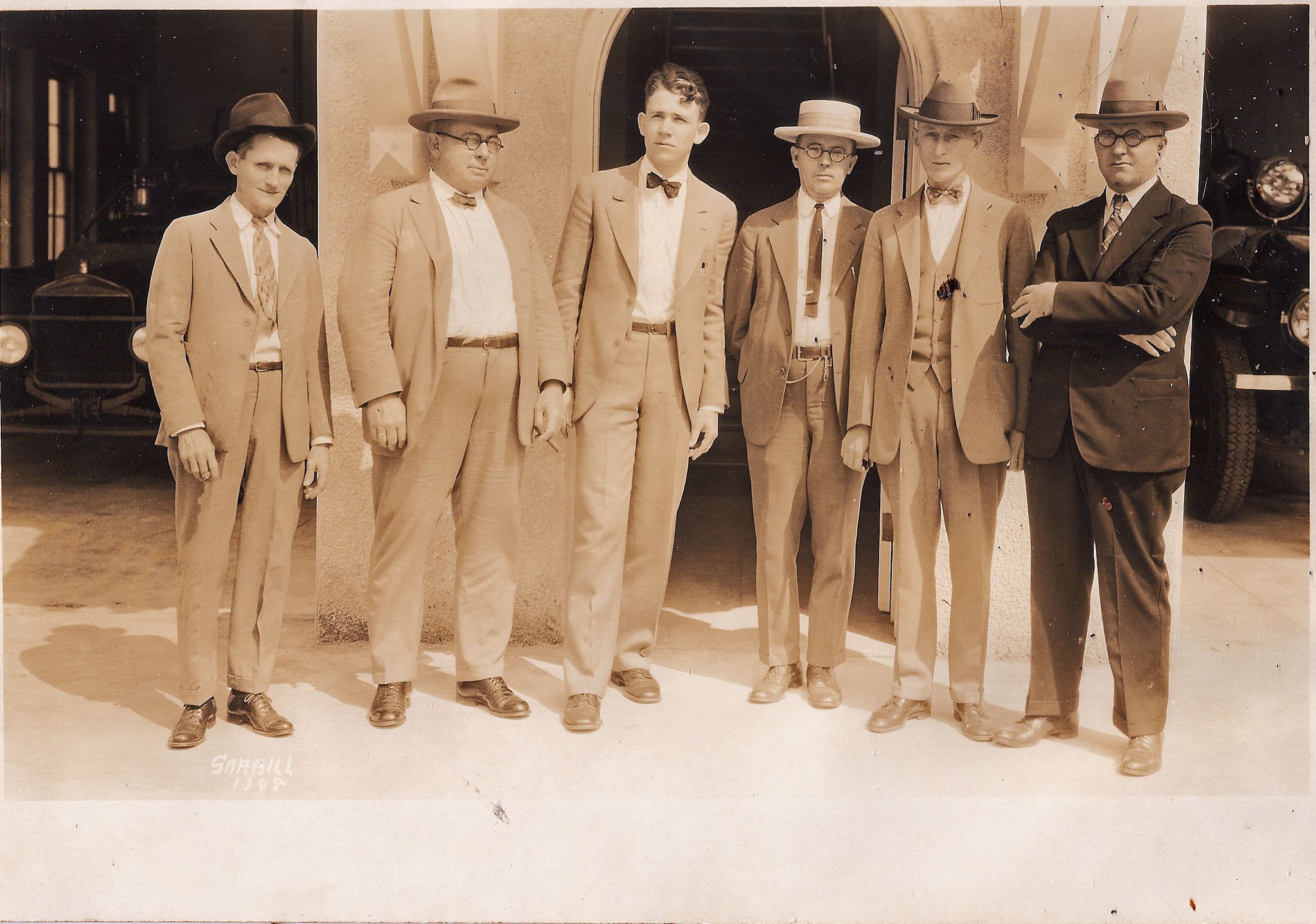426
As issues surrounding electric power in Minden returned to the headlines recently, I was reminded of one of my favorite quotes from President Harry S. Truman: “the only thing new in the world is the history you don’t know.”
The current head

1927 Minden City Council – J. Ronald Murph, W. T. Burnett, Mayor Robert F. Kennon, W. R. Garrison, Will Life and S. H. McCrary.
Minden’s ‘power’ debate of 1927
previous post


